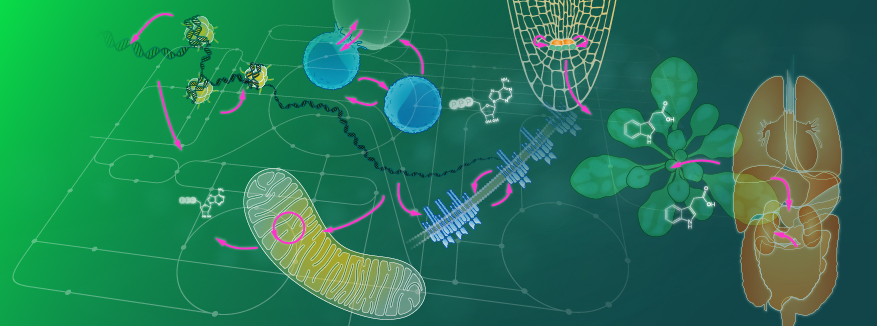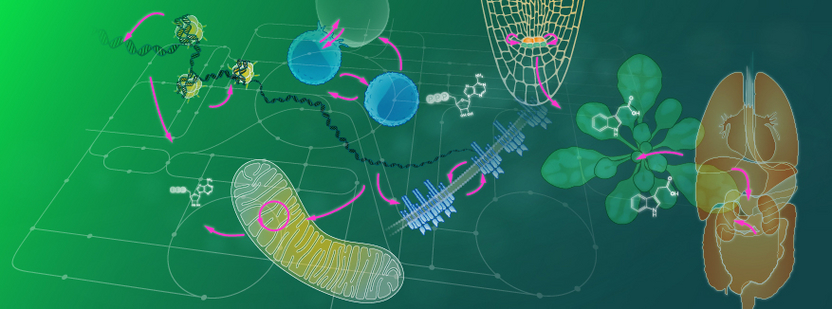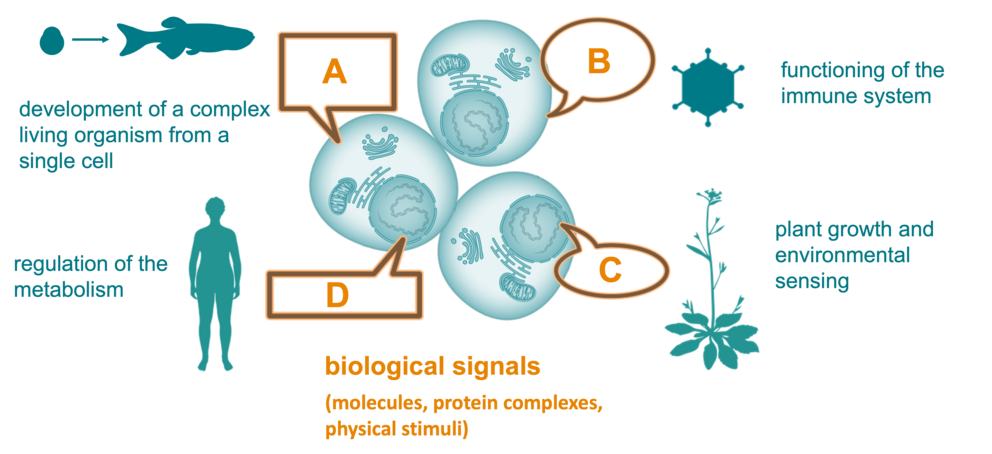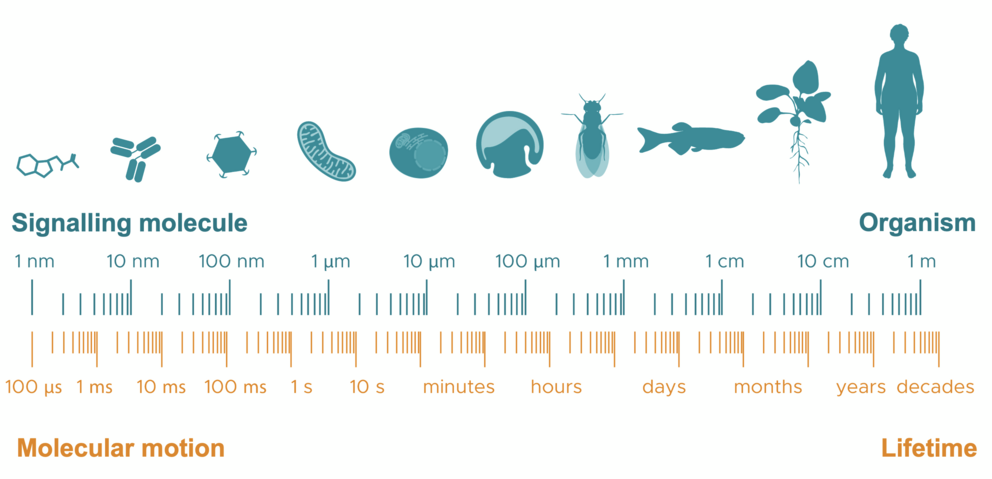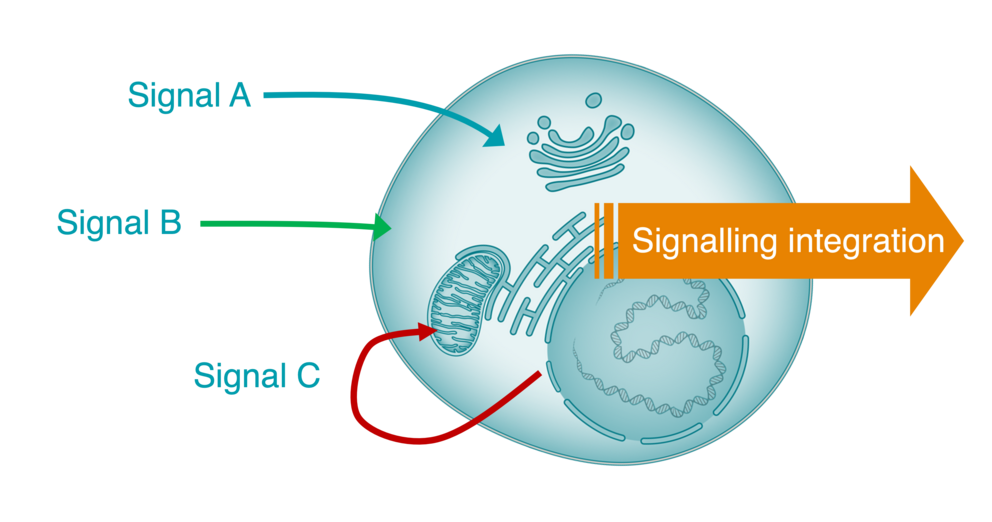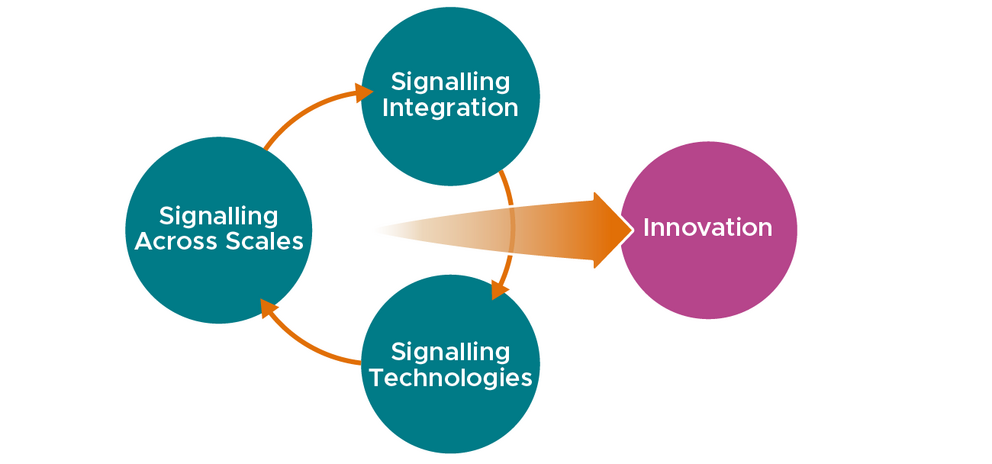What are biological signals and why are they important?
Biological signals are a major way in which organisms encode and transmit information. They come in an astounding variety of forms, ranging from tiny molecules and metabolites, to large proteins and even physical stimuli. A constant and dynamic exchange of such biological signals takes place between and within the cells of all complex living organisms. This exchange is a defining feature of life and is required for coordination of cellular tasks, tissue formation and the adaptation to environmental conditions. Accordingly, a comprehensive understanding of the fundamental principles of biological signal transmission and integration will be key to identify the causes of diseases, develop new drugs and therapies and engineer resilient and sustainable agriculture.




